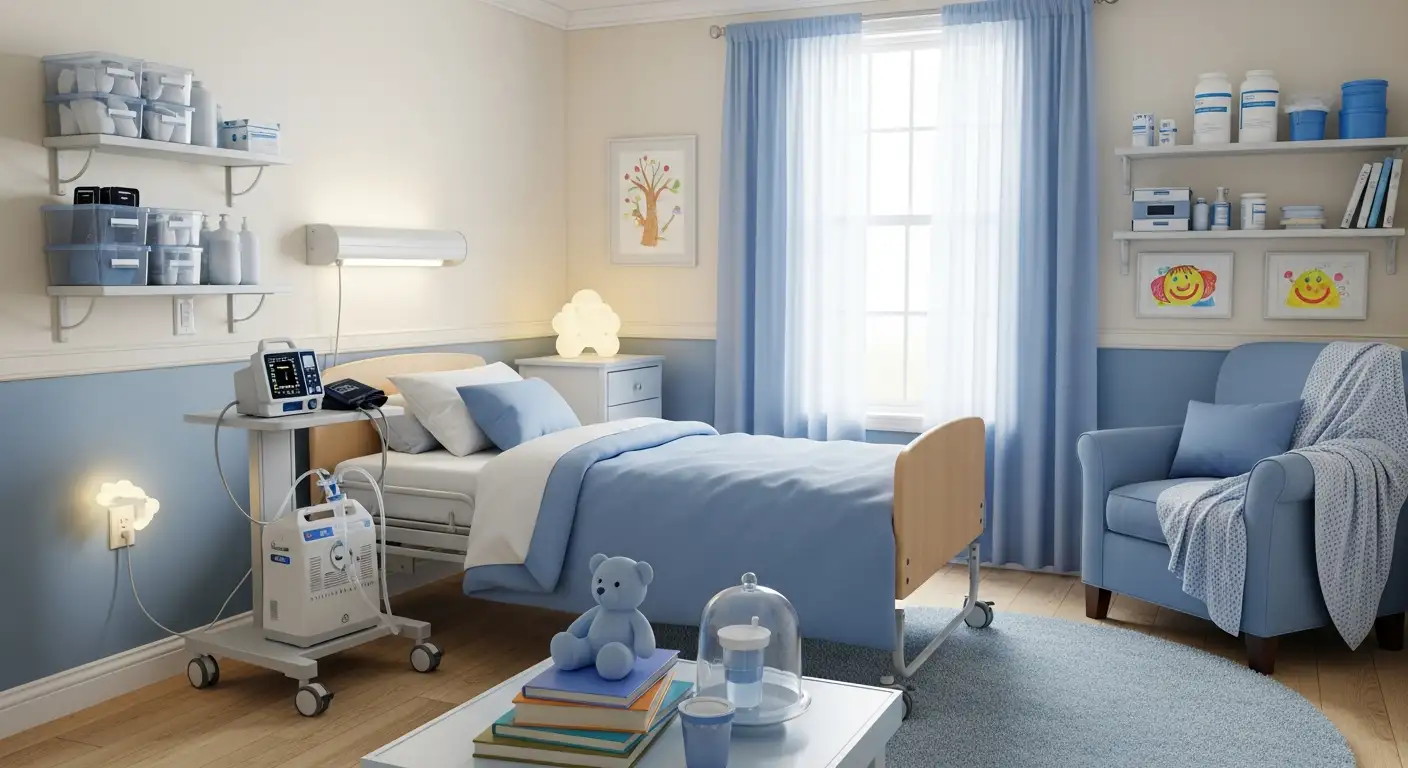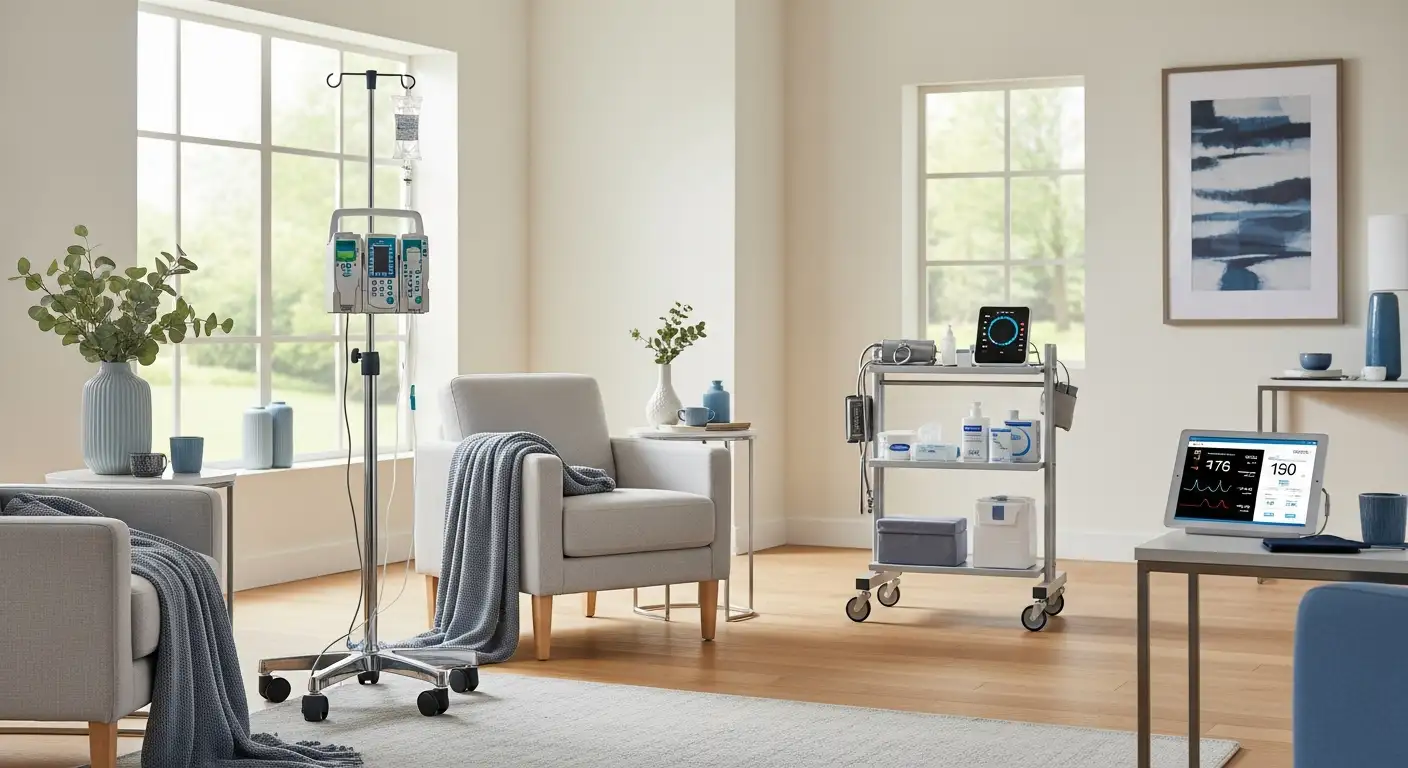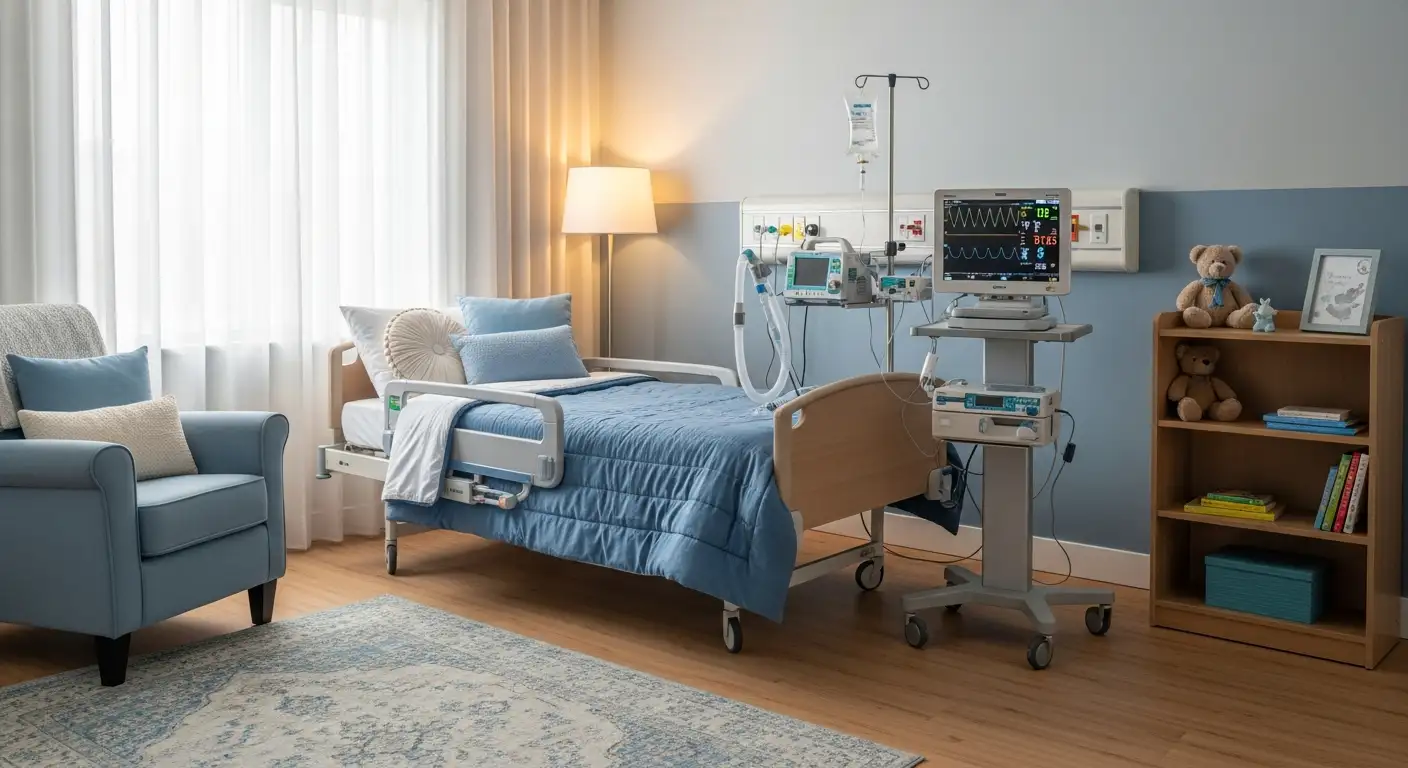Understanding the Importance of Pediatric Home Care for Children with Mobility Impairments
Pediatric home care is increasingly recognized as a vital component in supporting children with mobility impairments. This personalized, comprehensive approach allows children to receive medical, therapeutic, and supportive services within the comfort of their familiar environments. It not only provides essential health benefits but also promotes emotional well-being, independence, and community participation, ensuring children live active, fulfilling lives despite their medical complexities.
Defining Pediatric Home Care and Its Significance

What is pediatric home care for children with special health care needs?
Pediatric home health care is an essential support system designed for children with disabilities and medical complexity. It encompasses a wide range of services delivered in the child’s home, aimed at managing chronic conditions, facilitating development, and maintaining safety. These services are often provided by family caregivers who handle daily medical tasks, with additional support from trained healthcare professionals such as nurses, therapists, and social workers. Durable medical equipment and supplies like ventilators, feeding devices, and mobility aids are integral to this care, enabling children to thrive at home.
Overview of pediatric home care services
Home care services for children include skilled nursing care, physical, occupational, and speech therapies, respiratory support, and assistance with medical equipment. These services are tailored to each child’s specific health needs and help reduce hospital visits, promote comfort, and enhance independence.
Families often coordinate with specialists and care teams to develop personalized care plans. These plans ensure that children’s evolving needs are met effectively through continuous monitoring and caregiver training. Support services like respite care provide temporary relief for family caregivers, ensuring their well-being.
The role of family caregivers and healthcare professionals
Family caregivers are central to pediatric home care, often providing part or all of the daily medical tasks and emotional support. They are typically unpaid, balancing caregiving with other life responsibilities, which can cause stress and risk of injury if not adequately supported.
Healthcare professionals, including nurses, therapists, and social workers, work closely with families to deliver clinical care, training, and emotional support. They assess needs, manage complex treatments, and ensure safety with specialized medical devices. This collaborative effort creates a comprehensive, family-centered approach that promotes the child's health and development.
Integration with medical equipment and supplies
Specialized medical equipment plays a crucial role in pediatric home care by enabling children to carry out activities daily, ensuring safety, and reducing health risks. Devices such as ventilators, feeding pumps, oxygen monitors, and mobility aids like power wheelchairs help children manage their conditions effectively.
Proper use and maintenance of this equipment, along with caregiver training, are vital for safety and effectiveness. The integration of supplies and technology not only improves health outcomes but also supports social participation and developmental progress.
| Aspect | Details | Additional Notes |
|---|---|---|
| Medical Devices | Ventilators, feeding tubes, oxygen monitors | Support breathing, nutrition, and overall health |
| Mobility Equipment | Power wheelchairs, gait trainers, adaptive strollers | Enhance independence and participation |
| Support Tools | Medication dispensers, lift systems | Reduce caregiver burden and improve safety |
| Integration Benefits | Safer care, improved development, cost savings | Minimize hospitalizations and manage conditions at home |
High-quality pediatric home care combines these elements into a seamless, supportive system that fosters better health, independence, and quality of life for children with special health care needs.
Supporting Mobility and Promoting Independence at Home
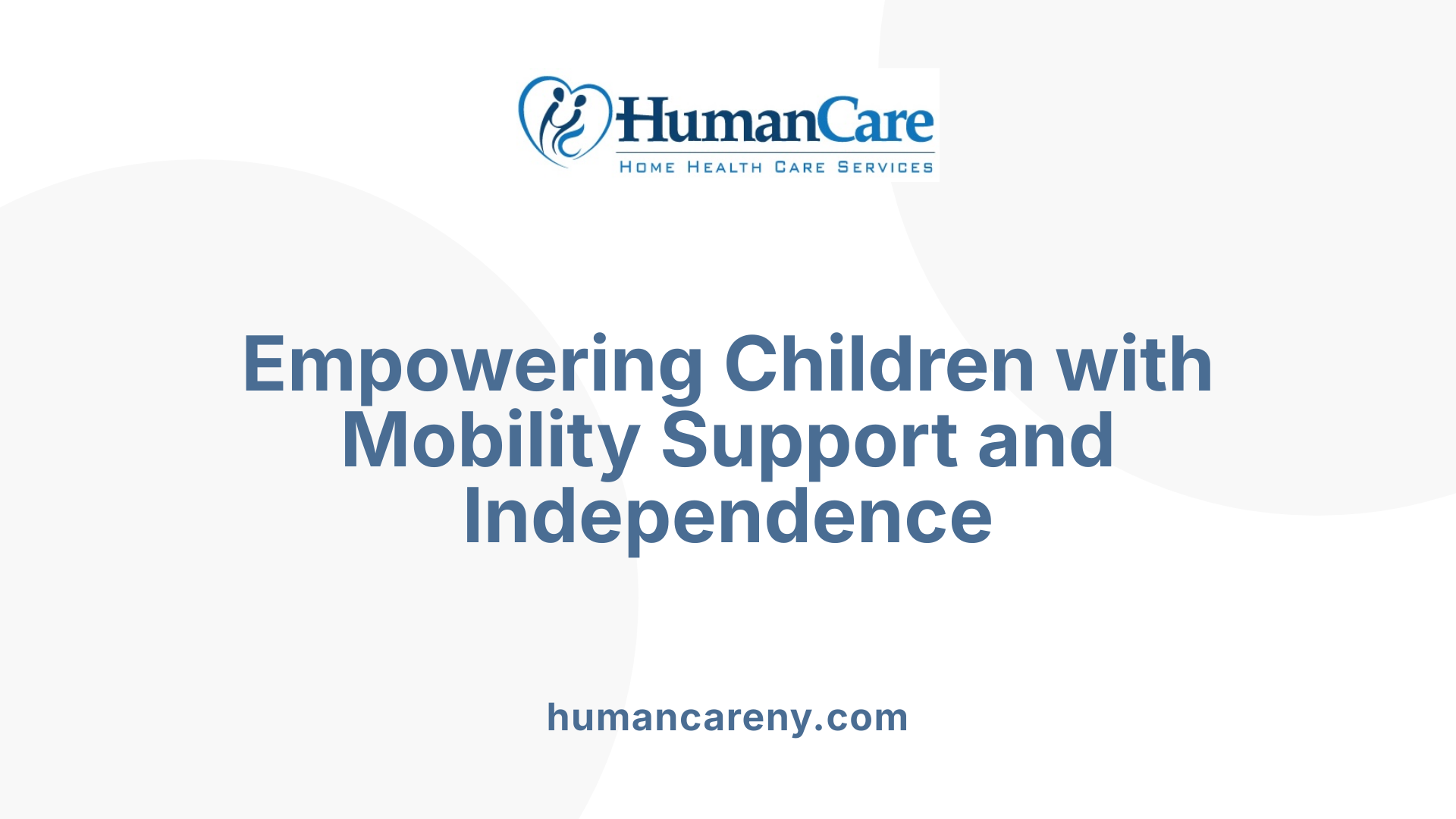
How does pediatric home care support children with mobility impairments?
Pediatric home care plays a vital role in supporting children with mobility challenges by delivering personalized medical and therapy services directly in their own homes. This familiar environment not only provides comfort but also encourages active participation in daily routines.
Home care teams often assist in the proper use of mobility aids such as power wheelchairs, gait trainers, and adaptive strollers. They help with positioning and managing medical equipment, including ventilators and feeding devices, thus reducing the need for hospital visits and promoting better health management.
Therapeutic services like physical, occupational, and speech therapy are integral components of pediatric home care. These therapies aim to improve strength, coordination, communication, and daily living skills, fostering greater independence.
Caregiver training is a cornerstone of effective pediatric home care. Families are taught how to safely operate medical devices, assist with mobility, and implement therapeutic exercises. This empowers caregivers to provide consistent, effective support and reduces reliance on external services.
Additionally, family involvement ensures that therapy goals align with the child's daily life, promoting socialization and emotional well-being. The collaboration among healthcare providers, therapists, and families helps create a seamless and comprehensive care experience.
By combining specialized equipment, therapeutic interventions, and caregiver support, pediatric home care enhances mobility, encourages independence, and improves overall quality of life for children with mobility impairments.
The Critical Role of Specialized Equipment in Pediatric Home Care
What types of specialized equipment are used in pediatric home care for mobility support?
In pediatric home care, a variety of specialized devices help children with mobility challenges move safely and comfortably. These include manual wheelchairs for children who require support in sitting and movement, as well as power wheelchairs for those needing assistance with mobility on a more independent level.
Adaptive strollers are designed to accommodate children with physical disabilities, featuring adjustable supports and safety features tailored to the child's size and needs. Gait trainers and walkers assist children in practicing walking and balance, promoting strength and coordination.
Positioning aids are essential to ensure children maintain proper posture during activities. These include devices such as standers, corner chairs, bolster supports, and specialized seating systems that stabilize the body and prevent deformities.
Additional tools like wheelchair cushions, harnesses, and glide accessories enhance safety and comfort by preventing pressure sores, providing secure restraint, and facilitating easier movement.
Orthopedic and therapeutic aids, like braces or splints, support bone growth and prevent contractures, while therapeutic aids help in overall physical development.
Each piece of equipment is chosen based on the child's specific medical needs, with a focus on safety, promoting independence, and encouraging active participation in daily activities. Proper training in the use of these devices ensures that children can safely benefit from their mobility support systems.
Comprehensive Services, Resources, and Support Systems

What services and resources are available through pediatric home care programs for children with disabilities?
Pediatric home care programs provide an extensive array of services to support children with disabilities, aiming to enhance health, development, and independence. These programs include skilled medical care such as nursing, respiratory support, and management of medical equipment like ventilators and feeding devices. Therapeutic services including physical, occupational, and speech therapy are often offered in-home to improve mobility, communication, and daily living skills.
In addition to medical and therapeutic care, families have access to vital resources such as specialized adaptive equipment, developmental screenings, and early intervention services targeting infants and toddlers at risk. Financial support plays a crucial role; programs like Medicaid, Supplemental Security Income (SSI), and TEFRA help cover healthcare costs and assist with daily needs.
Community resource programs, including the California In-Home Supportive Services (IHSS), further support families by providing personal care, transportation to medical appointments, and assistance with household tasks. These services empower families to care for their children effectively while promoting normalcy and community integration. Support systems also extend to family education, parent training, and transition services that prepare children for adult independence.
Overall, pediatric home care links children with disabilities to a broad spectrum of medical, developmental, and social resources, fostering a holistic support network that addresses various needs across different life stages.
Support Systems, Policies, and Family-Centered Approaches in Pediatric Home Care
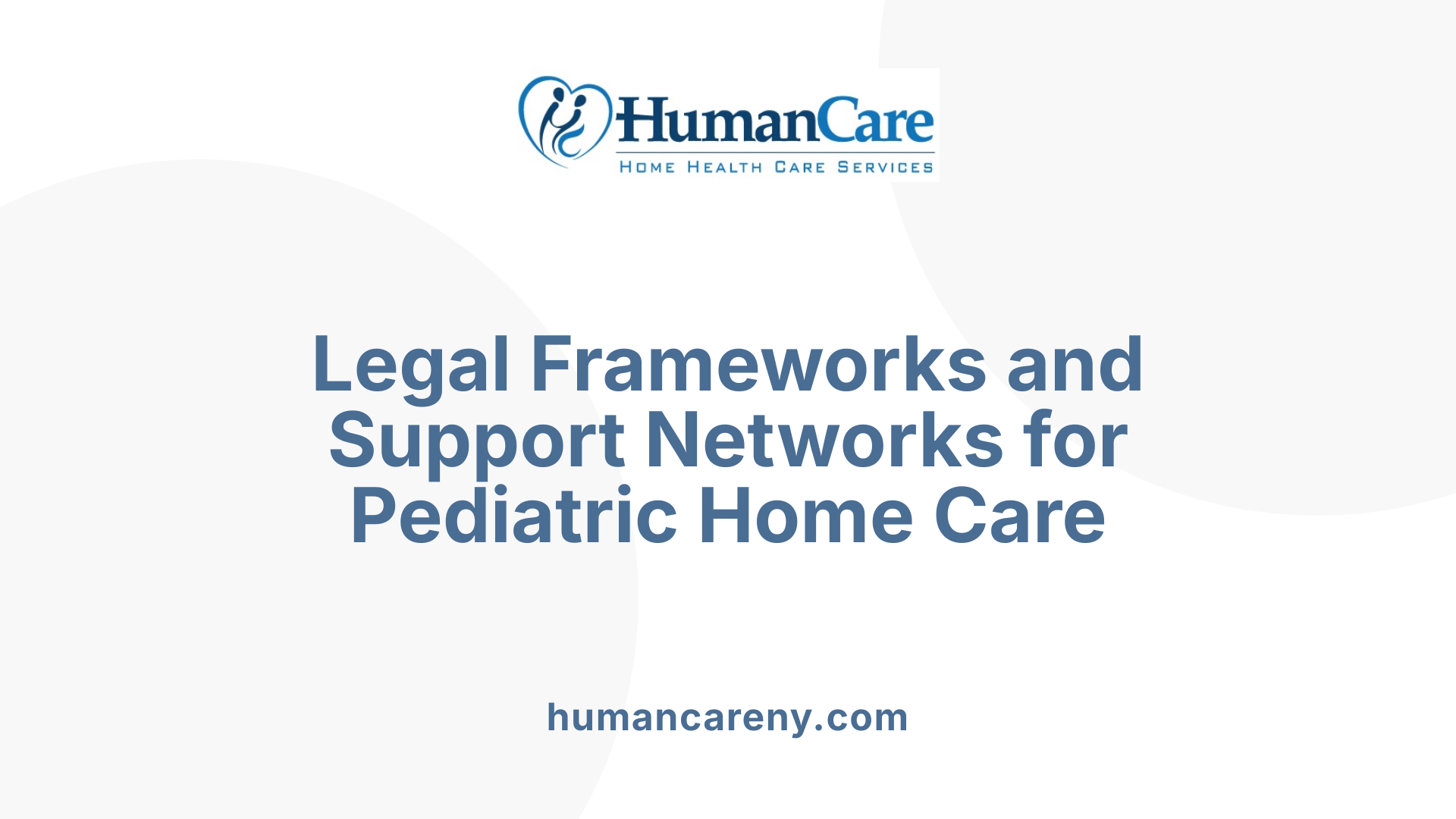
How do support systems, legal rights, and policy frameworks assist children with mobility impairments in pediatric home care?
Support systems, legal rights, and policy frameworks are fundamental for enabling children with mobility impairments to receive effective pediatric home care. Legal protections like the Americans with Disabilities Act (ADA) and the Individuals with Disabilities Education Act (IDEA) create a foundation for ensuring access to necessary services.
The ADA mandates that public spaces, including healthcare and community facilities, accommodate children with disabilities, removing barriers to mobility and participation. IDEA ensures that children with disabilities receive a free appropriate public education (FAPE) and supports services such as early intervention and specialized therapies. These laws foster environments where children can thrive both at home and in the community.
Support networks involve healthcare providers, social workers, case managers, and community organizations, all working together to identify needs, coordinate care, and facilitate access to resources. For example, community-based programs and Medicaid reimbursement schemes help cover medical supplies, therapies, and respite care, easing financial and logistical burdens on families.
Policy frameworks guide the development and implementation of equitable, family-centered care. They emphasize the importance of culturally competent services, timely intervention, and ongoing support to promote health equity. This includes addressing barriers such as transportation, insurance coverage gaps, and geographic disparities.
In practice, these systems empower families, strengthen their capacity to care for their children, and ensure continuous access to essential medical and rehabilitative services. By providing a legal and organizational backbone, these frameworks promote safe, effective, and inclusive pediatric home care that adapts to each child's evolving needs.
| Aspect | Description | Impact |
|---|---|---|
| Legal Rights | ADA, IDEA, Medicaid policies | Enforce access, education, and financial support |
| Support Networks | Healthcare providers, social workers, community orgs | Facilitate care coordination and barrier removal |
| Policy Goals | Equity, family empowerment, community integration | Promote inclusive, sustainable care environments |
This comprehensive approach ensures that children with mobility impairments benefit from timely, appropriate, and continuous care, fostering independence and participation in society.
Empowering Families and Enhancing Child Well-being
In summary, pediatric home care plays an indispensable role in supporting children with mobility impairments by providing tailored services, advanced equipment, and robust support systems. It empowers families, reduces hospital reliance, and promotes ongoing development and independence. As research advances and policies evolve, pediatric home care continues to improve, ensuring that children with disabilities can thrive in their homes and communities. Continued investment, coordinated care models, and community engagement are vital for enhancing outcomes and quality of life for these children and their families.
References
- Home Health Care Research for Children With Disability and ...
- Harnessing Mobility: A Medically Complex Child's Home Program ...
- The Role of Specialized Equipment in Pediatric Home Care
- Access to Home- & Community-Based Services for Children with ...
- IHSS for Children - California Department of Social Services - CA.gov
- Services for Children with Disabilities - ChildCare.gov
- Pediatric Home Care for Complex Medical Needs - Americare

